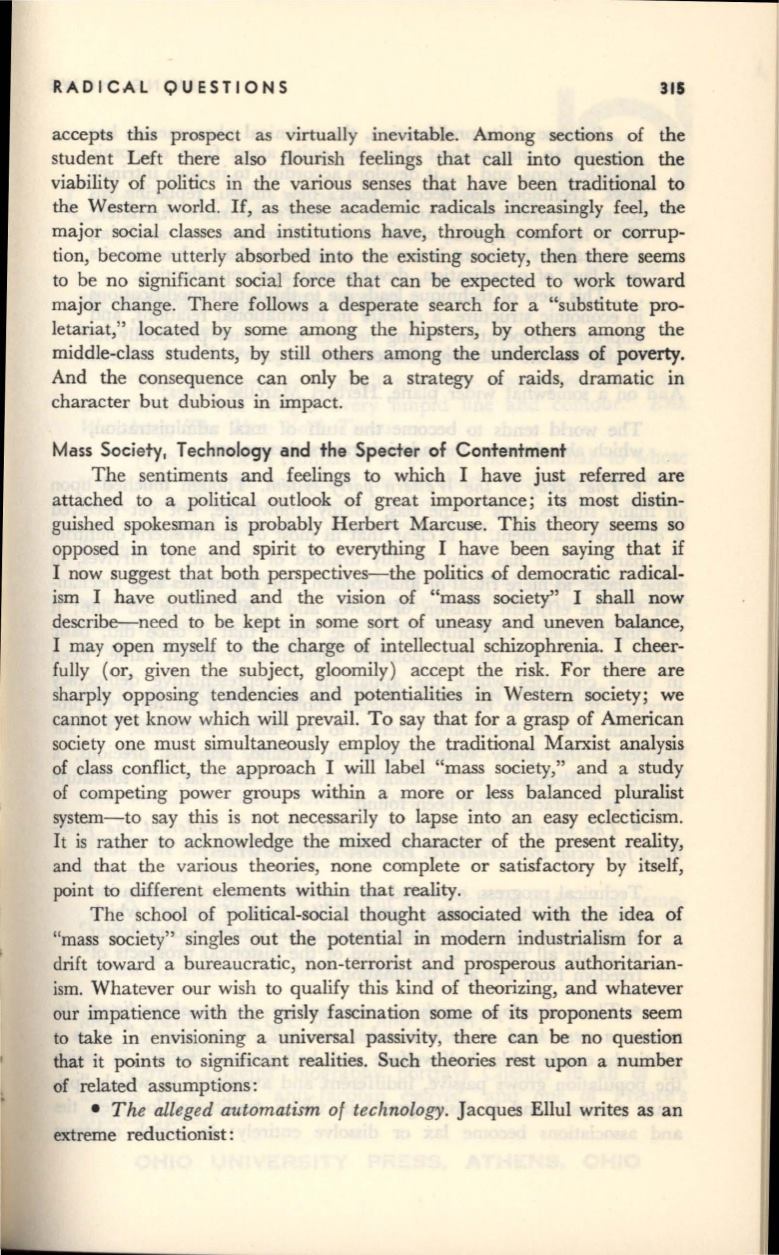
RADICAL QUESTIONS
315
accepts this prospect as virtually inevitable. Among sections of the
student Left there also flourish feelings that call into question the
viability of politics in the various senses that have been traditional to
the Western world.
If,
as these academic radicals increasingly feel, the
major social classes and institutions have, through comfort or corrup–
tion, become utterly absorbed into the existing society, then there seems
to be no significant social force that can be expected to work toward
major change. There follows a desperate search for a "substitute pro–
letariat," located by some among the hipsters, by others among the
middle-class students, by still others among the underclass of poverty.
And the consequence can only be a strategy of raids, dramatic in
character but dubious in impact.
Mass Society, Technology and the Specter of Contentment
The sentiments and feelings to which I have just referred are
attached to a political outlook of great importance; its most distin–
guished spokesman is probably Herbert Marcuse. This theory seems so
opposed in tone and spirit to everything I have been saying that if
I now suggest that both perspectives-the politics of democratic radical–
ism I have outlined and the vision of "mass society" I shall now
describe--need to be kept in some sort of uneasy and uneven balance,
I may open myself to the charge of intellectual schizophrenia. I cheer–
fully (or, given the subject, gloomily) accept the risk. For there are
sharply opposing tendencies and potentialities in Western society; we
cannot yet know which will prevail. To say that for a grasp of American
society one must simultaneously employ the traditional Marxist analysis
of class conflict, the approach I will label "mass society," and a study
of competing power groups within a more or less balanced pluralist
system-to say this is not necessarily to lapse into an easy eclecticism.
It is rather to acknowledge the mixed character of the present reality,
and that the various theories, none complete or satisfactory by itself,
point to different elements within that reality.
The school of political-social thought associated with the idea of
"mass society" singles out the potential in modern industrialism for a
drift toward a bureaucratic, non-terrorist and prosperous authoritarian–
ism. Whatever our wish to qualify this kind of theorizing, and whatever
our impatience with the grisly fascination some of its proponents seem
to take in envisioning a universal passivity, there can be no question
that it points to significant realities. Such theories rest upon a number
of related assumptions:
• The alleged automatism of technology.
Jacques Ellul writes as an
extreme reductionist:


